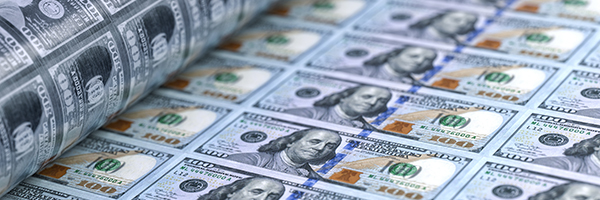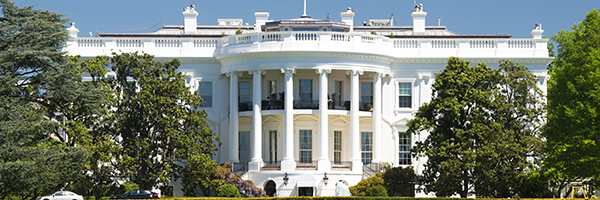
May 29, 2023 | Daily JAM, Morning Briefing |
President Joe Biden and House Speaker Kevin McCarthy agreed on a deal that would raise the debt ceiling and avert a default by the U.S. government. If they can get it through Congress where a core of ultra-conservative Republican House members is very unhappy that McCarthy didn’t extract more concessions from the White House. The first test for the deal is the House Rules Committee.

May 26, 2023 | Daily JAM, Short Term |
If negotiators reach a deal on resolving the debt ceiling crisis that only begins a process fraught with nailing-biting delays built into the legislative process. And opposition to the deal from progressive Democrats and ultra-conservative Republicans. Today, the stock market finished strongly higher on hopes that a deal that avoids a U.S. debt default is within reach. And on continued hyper-enthusiasm about anything vaguely touched by artificial intelligence. Next week, isn’t likely to show a smooth continuation of the upward trend. I’d expect headlines about disappointment with the deal and on the possibility that there aren’t enough centrist Democratic and Republican votes to pass the deal. I expect the deal to pass, eventually, but that doesn’t mean the market won’t chew its fingernails with worry on any particular day.

May 25, 2023 | Daily JAM |
In 2011 in an earlier debt ceiling battle, S&P Global Ratings downgraded the U.S. credit rating from AAA on the risk that the United States would default on its debt. Yesterday, May 24, Fitch Ratings moved the United States to “rating watch negative” on the risk that Congress would fail to act in time to prevent a U.S. default on the country’s government debt.

May 24, 2023 | Daily JAM |
Minutes from the Federal Reserve’s May 3 meeting show that some Fed officials want the central bank to be ready to step in if inaction in Washington produces a big drop in the financial markets. Chair Jerome Powell has in public repeatedly said that “no one should assume that the Fed can protect the economy” if the Treasury can’t make good on all federal obligations. But that doesn’t mean, the minutes suggest, that the Fed will do nothing.

May 24, 2023 | Daily JAM, Mid Term |
We all know that a continued standoff on the debt ceiling would be bad for the U.S. economy and financial markets. But even a deal along current lines is going to cost jobs–lots of jobs–and take a bite out of economic growth, according to Bloomberg Economics Spending cuts expected in an eventual deal to raise the U.S. debt limit could cost the country as many as 570,000 jobs and make the recession projected by Bloomberg Economics even worse.

May 24, 2023 | Daily JAM, Morning Briefing |
This reporting from the Washington Post this morning makes me very pessimistic about any debt ceiling deal until after the first checks DON’T go out on June 1 or whenever. “During a closed meeting Tuesday morning at a GOP hangout a block from the U.S. Capitol,” the Post reported “House Speaker Kevin McCarthy (R-Calif.) made a pointed plea: Do not break ranks over the debt ceiling crisis. Ahead of another round of negotiations with the White House, McCarthy told Republicans they had the upper hand in the discussions and encouraged his members to show their support for colleagues facing tough reelection bids next year as a sign of unity, according to two people in attendance, who spoke on the condition of anonymity to describe the private talk. McCarthy urged members to make sure vulnerable lawmakers would have plenty of campaign money from GOP coffers — even pledging that they would not be outraised by their opponents in the 2024 election cycle.”

May 20, 2023 | Daily JAM, Short Term |
I expect more posturing, more attempts to extract leverage, and more blaming–but, in my opinion, no debt ceiling deal this week. The big question: “When does the stock market start to take the possibility seriously–unthinkable as it might be–that the United States could default on its debt.

May 20, 2023 | Daily JAM |
Bloomberg pulled together this list of when big Wall Street names are expecting the Treasury to run out of money and for the U.S. to default on its obligations. Wall Street calls this the X-date.

May 19, 2023 | Daily JAM, Morning Briefing |
If or when there is a debt ceiling deal, the Treasury Department will need to go on a selling binge to replenish its cash supplies. Ari Bergmann, the founder of Pneso Advisors, told Bloomberg that he estimates the Treaury’s cash needs at more than $1 trillion by the end of the third quarter. The deluge of supply as the Treasury rushed to sell bills, notes, and bonds would, he warns, the supply burst would drain liquidity from the banking sector, raise short-term funding rates, and tighten the liquidity just as the U.S. economy is on the edge of recession. Bloomberg reports that Bank of America estimates the wave of supply from Treasury Department sales would have the same economic impact as a quarter-point interest-rate hike.

May 19, 2023 | Daily JAM, Morning Briefing |
Remember yesterday when both President Joe Biden and House Speaker Kevin McCarthy sounded so reassuringly optimistic that a deal would get struck on raising the debt ceiling before the U.S. defaulted on its obligations? Today, not so much as McCarthy’s negotiators walked out of talks with White House officials.

May 13, 2023 | Daily JAM |
If you believe in the gods of the financial marketplace, it looks like they’ve arranged things so that investors and traders have the maximum opportunity to worry about the dangers of a U.S. default.
I’m actually somewhat more optimistic today, Saturday, May 13, than I was on Friday that Congress will pass a debt ceiling bill before the United States goes into default.. The decision to postpone talks between President Joe Biden and congressional leaders scheduled for Friday to next week actually strikes me as good news. It’s a sign that the staffs of the two sides are talking in an attempt to brainstorm a solution. And staffers are more likely than the politician themselves to come up with a pragmatic, cynical, short-term solution. I think we’re still in for two or three weeks of on-the-brink news and market volatility, but I think the odds are good that a short-term solution will emerge before we’re too far into June.
The “solution” will amount to kicking the problem down the road
May 8, 2023 | Daily JAM, Morning Briefing |
The next potential BIG volatility day comes on Tuesday, May 9, when President Joe Biden is scheduled to meet with Speaker of the House Kevin McCarthy will hold talks on raising the debt ceiling to avert a U.S. default. I don’t expect a breakthrough of any dimension. The politics say to me that both sides are dug in and that we’re still too far away–weeks perhaps–from the excrement hitting the propellers. The question for investors and traders is when the financial markets might start taking the prospects of a U.S. default seriously.








